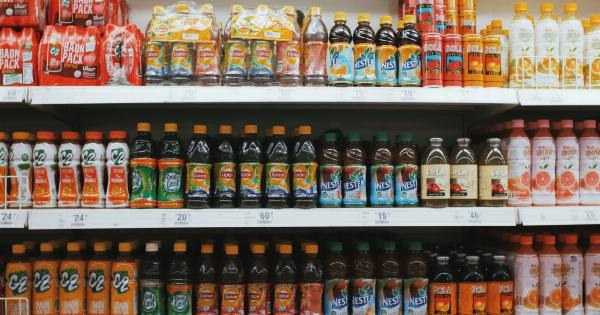Excessive drink consumption among children is a growing concern in today’s society. The availability and appeal of sugary beverages, energy drinks, and alcohol pose significant risks to the health and well-being of children.
It is important for parents, caregivers, and educators to play an active role in discouraging children from consuming excessive amounts of drinks that can have detrimental effects on their physical and mental health. This article will explore ten effective ways to prevent and discourage children from engaging in excessive drink consumption.
Educate children about the risks
One of the most important steps in discouraging children from excessive drink consumption is education. Children need to understand the potential risks and negative consequences associated with consuming sugary beverages, energy drinks, or alcohol.
Explain the impact on their overall health, such as weight gain, dental problems, and disruption of their sleep patterns.
Be a role model
Children often mimic the behaviors they observe in adults, so parents and caregivers should be mindful of their own drink consumption habits. Demonstrating responsible and moderate drink choices will set a positive example for children to follow.
Encourage healthy alternatives
Provide children with access to a variety of healthy and refreshing alternatives to sugary drinks. Encourage them to hydrate with water, enjoy natural fruit juices (without added sugars), or make their own flavored water.
Emphasize the importance of choosing nutritious options that will benefit their overall health and well-being.
Monitor and limit access
Parents should actively monitor and limit their child’s access to drinks that are high in sugar or caffeine.
By controlling the availability of these beverages at home or in lunch boxes, parents can significantly reduce their child’s desire to consume them. Instead, offer healthier alternatives and set clear boundaries regarding drink choices.
Create a supportive environment
Building a supportive environment at home and in school is crucial in discouraging excessive drink consumption. Implement policies and rules that promote healthy choices and limit the availability of sugary drinks.
Collaborate with other parents, teachers, and community members to create awareness and encourage positive behaviors among children.
Teach critical thinking skills
Empower children to think critically about the marketing and advertisement tactics used by drink companies. Teach them to question the perceived benefits of sugary or caffeinated beverages and to consider the potential negative effects on their health.
Encourage children to make informed decisions by understanding the truth behind the appealing advertisements.
Engage in physical activities
Encourage children to engage in regular physical activities and sports. Physical exercise not only promotes better overall health but also reduces the likelihood of excessive drink consumption.
By keeping children engaged in active lifestyles, they are less likely to turn to unhealthy drinks for refreshment.
Teach decision-making skills
Develop decision-making skills in children to help them make responsible choices regarding their drink consumption. Teach them to evaluate the potential risks and benefits of their choices and to consider long-term consequences.
Providing them with decision-making frameworks will empower them to make better choices independently.
Create a dialogue
Engage children in open discussions about the effects of excessive drink consumption. Encourage them to ask questions, express concerns, and voice their opinions.
By fostering an open dialogue, children are more likely to develop a deeper understanding of the importance of making healthy drink choices.
Involve schools and community organizations
Collaborate with schools and community organizations to implement educational programs and initiatives that raise awareness about the risks associated with excessive drink consumption.
Organize events, workshops, and campaigns to promote healthier drink options and provide resources for children and their families.






























